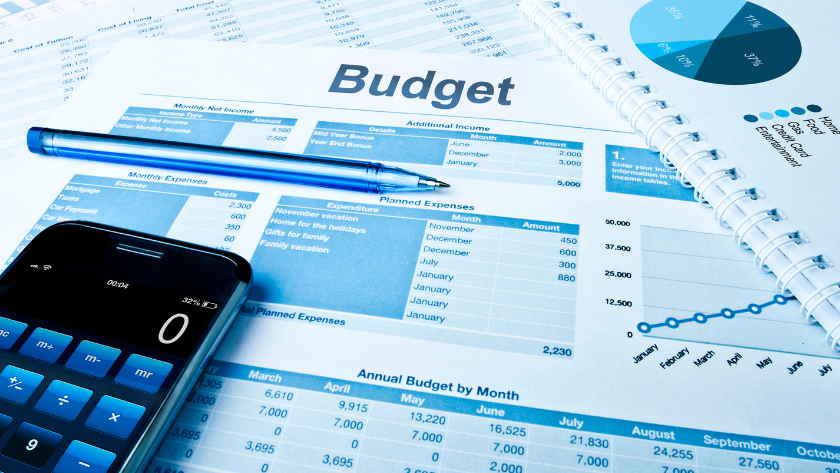People have a lot of misconceptions about budgeting, giving the word, “budget” a bad rep. In fact, the word, “budget” will send people running, just like the word, “diet.” Social media is wrought with so-called, “financial-experts” that get a lot of comments, likes, and shares bashing the concept of budgeting because people do not use budgeting properly. However, a budget is simply a prioritization of what you want to spend your money on. It aligns your actions with your goals to living the life you want to live and it is an ESSENTIAL step to paying off debt and building wealth. Let’s provide some clarity on some of the most common misconceptions.
What a budget is NOT:
- Tracking your expenses
- A rigid set of constraining rules
- Inflexible or non-changing
- Difficult or Time-consuming
- A “fun” killer
Tracking your expenses
Tracking your expenses is not a future plan for your money. Tracking your expenses can be very useful for helping you create a realistic budget based on your spending habits, however, it alone will not keep you on track to assuring that you spend less money than you make. Tracking expenses can help you know where you’ve typically spent more on particular categories that don’t align with your priorities. For example, if you spend $1,000 a month on eating out but paying off debt is more important to you than eating out, tracking your expenses will make you aware of when your actions do not align with your priorities. A budget tells your money where to go, rather than wondering where it all went at the end of the month.
A rigid set of constraining rules
A budget is not meant to feel constraining or limiting in your fun. In fact, it is quite the opposite. When you know that you have enough money set aside to fund the things and experiences you want to do, this can be a very freeing experience. When it starts feeling constraining is when you create a budget that does not align with your financial goals and priorities or when your income is low. Even with a low income, however, a budget can give you peace of mind to have money set aside for your essentials and it can help you identify ways you can improve your financial situation. For example, when you break down by category, it becomes apparent quickly when you do not have enough income to meet your expenses and you PLAN ahead on your priorities. Without a plan for your money, you end up making decisions in the moment without considering the impact to your financial needs in other categories. For example, you may agree to dine out with your friends one night, but then later not have enough money for groceries for the rest of the month. This can become very stressful. A budget helps avoid those scenarios.
Inflexible or non-changing
It may take 2 to 3 months for you to start learning how much you actually need in each category before you get a more realistic budget. When you budget, know that you can always change it if it is not working for you. For example, if you budget $400 a month for groceries but consistently find yourself spending $450 a month and you can’t seem to cut down any further in your spending, then next month, make sure to give yourself $450 in your grocery budget and cut expenses from another category that matters less to you.
Difficult or Time-consuming
Budgeting does not have to be complicated. Even a written budget on a sheet of paper each month can make a huge difference in directing your money with a plan rather than having no plan at all. Today, there are many budgeting tools that can make the budgeting process much, much easier. Applications like Ploutos Budget even link to your accounts so that you can classify expenses in real time and have clear visibility to how much you have left to spend at any given point in time throughout the month. You can also save your monthly budgeting goals so that your monthly budget is started for you each month. All you need to do is make any tweaks for anything that might be slightly different for that month’s expenses. With tools like these, budgeting does not have to be difficult or even time-consuming. Budgeting simplifies your life by making it easy to hit your financial goals of paying off debt or building wealth.
A “fun” killer
As alluded to in one of the previous points, many people think of the word “budget” as something that limits your ability to have fun. They think being “on a budget” is like a restrictive diet that just says you can’t ever have your desert. But this notion is worth diving into deeper because if a budget is killing your fun, then your priorities are not aligned with your actions. A budget allows you to do this. If your priority is to be able to take a vacation without having to go into debt, a budget allows you to create a plan to do so. In this regard, a budget is actually a way you CAN have fun. I’d argue NOT having a budget is a fun killer because you will feel like you can never gain traction on your financial goals if you spend without knowing how much you have to spend by category and have no order to your spending priorities. If the word “budget” de-motivates you, think of your budget as your “spending plan” instead. I’m a spender and love to spend money on things that bring me joy. But some things bring me more joy than others. Our budget allows me to think about what I want to spend my money on most to maximize my joy, not kill it. Without a budget, I have no way of assuring I’m spending my money on the things or experiences that bring me the most joy and contentment.
Don’t let “financial experts” fool you into thinking that budgeting is a waste of time. Without the intentionality of a plan, you will not be as effective in building wealth. Luckily, if time holds you back from creating a budget, utilize tools like Ploutos Budget to make efficient work of the task and start hitting your financial goals!





